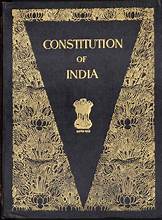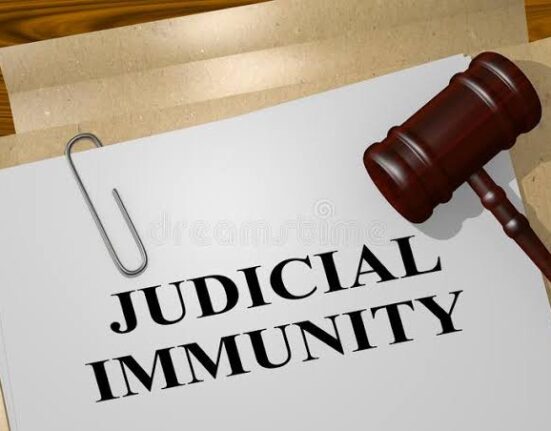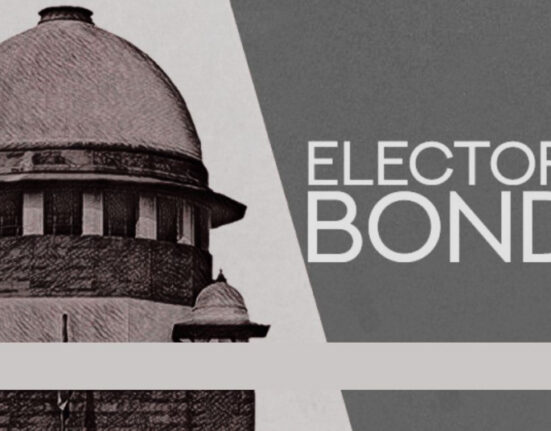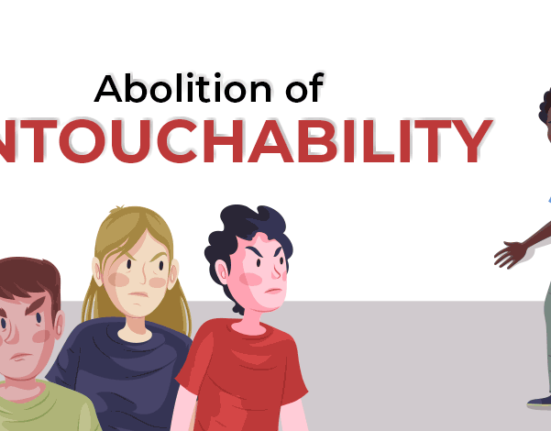Sanchit Gupta, a 3rd-Year student, from Chandigarh University, has written this Article “Special provisions relating to certain classes”.
Manusmriti widely regarded to be the most authoritative book on Hindu law and dating back to at least 1,000 years before Christ was born, “acknowledges and justifies the caste system as the basis of order and regularity of society”.
The caste system divides Hindus into four main categories – Brahmins, Kshatriyas, Vaishyas and the Shudras. Many believe that the groups originated from Brahma, the Hindu God of creation. At the top of the hierarchy were the Brahmins who were mainly teachers and intellectuals and are believed to have come from Brahma’s head. Then came the Kshatriyas, or the warriors and rulers, supposedly from his arms. The third slot went to the Vaishyas, or the traders, who were created from his thighs. At the bottom of the heap were the Shudras, who came from Brahma’s feet and did all the menial jobs.
The main castes were further divided into about 3,000 castes and 25,000 sub-castes, each based on their specific occupation. Outside of this Hindu caste system were the achhoots – the Dalits or the untouchables. Moreover, The Constitution of India provides that no person should be discriminated against, based on race, sex, caste, and religion. The Indian Constitution guarantees equal status and opportunity to all citizens. The framers of the Constitution envisaged the principle of equality. Also, focused upon the development and welfare of the citizens in general. So that, every individual is at the same pace, resulting in the development of the nation.
Introduction
Empowerment of the weaker sections can be more effective and efficient by empowering the neighborhood individuals to take active participation in uplifting the weaker sections at the grassroots level. Empowerment of weaker sections includes general strengthening that is the instructive, monetary, political, and social strengthening of the weaker sections. For the empowerment of the weaker sections, there are constitutional and statutory provisions available.
Because many untouchables began to feel deprived and lonely due to the practice of untouchability, the concept of equality in terms of untouchability was adopted under the Protection of Civil Rights. Henceforth, The Act prevented SC/ST from social disabilities and aimed to give a life of dignity, self-esteem, and life without fear, violence, and suppression from dominant communities. The commission was established with the goal to protect Scheduled Castes and Anglo Indian communities from exploitation and promoting and protecting their social, educational, economic, and cultural interests. Furthermore, The National Commission for Scheduled Castes is governed by Article 338 of the Indian Constitution. The National Commission for Scheduled Tribes is dealt with in Article 338A.
Statutory provisions for the upliftment and betterment of the Scheduled Castes, Scheduled Tribe, and the Backward Classes are:
- To investigate and monitor all matters relating to the safeguards for SCs and STs under the constitution and any other law or any order of the Government and to evaluate the working of such safeguards.
- To inquire into specific complaints with respect to the deprivation of rights and safeguards of SCs and STs.
- To participate and advice on planning process of socio economic development of SCs and STs and to evaluate the progress of their development under the Union and any State.
- To present to the President reports upon the working of those safeguards annually and at such other times as the commission deems fit.
- To make recommendations as to the measures that should be taken by the Centre and State for the effective implementation of those safeguards and other measures for the protection, welfare and socio economic development of SCs and STs.
The commission shall consist of a chairman, vice chairman and five other members. The chairman, vice chairman and the members of the commission shall be appointed by the President.
Special provisions relating to certain classes: Linguistic Minorities
Linguistic minority is a class of people whose mother tongue is different from that of the majority in the State or part of a State. Article 350-A, imposes a duty on the State to endeavor to provided adequate facilities for instructions in the mother tongue at the primary stage of education to children belonging to linguistic minority. Moreover, Article 347 provides for the use of majority language in the administration. Article 350 gives right to every person to submit a representation for the redress of any grievance to any officer or authority of the Union or a State in any of the Language used in the Union or a state, as the case may be.
Furthermore, Article 350-B, empowers the President to appoint a special officer for linguistic minorities. It is also the duty of the special officer to investigate all matters relating to the safeguards provided for linguistic minorities under this constitution and report to the President upon those matters at such intervals as the President may direct.
Constitutional Provisions for the Protection of Weaker Sections
Constitutional makers have provided different safeguards for the upliftment and protection of the weaker section of society. They are as follows:
Articles 14- 19
- Article 14 of the constitution provides for the equal protection of law and equality before the law. Therefore, irrespective of class every citizen has the right to be treated equally before the law.
- Discrimination based on disability, castes, religion, sex, or place of birth is prohibited under Article 15. Moreover, nothing in this article prevents the government from making particular measures and arrangements for the benefit of children and women Article 15(3), Scheduled castes/tribes/socially and economically deprived sections Article 15(4) & Article 15(5).
- In regards to employment or appointment to any position under the state, Article 16 guarantees equal opportunity to all people. States have the ability to create specific arrangements for reservations and appointments for the backward classes. Furthermore, the state has the jurisdiction to determine whether a person qualifies as a member of the backward classes. In monetary terms, it serves to strengthen the weaker portion.
- Untouchability is abolished by Article 17 of the Constitution, and it is a criminal offense under the Protection of Civil Rights Act of 1955. The state is entitled to limit freedom of movement for the advantage of the Scheduled tribe, according to Article 19(5).
The Constitution of India, Articles 21- 29
- Article 21 states that everyone has the right to life and personal liberty, with the exception of legal procedures. Everyone is entitled, regardless of caste, sex, religion, or place of origin, and they cannot be deprived of their lives.
- Article 21A stipulates that all children aged 6 to 14 have the right to free and obligatory education.
- Article 24 makes it illegal to employ minors under the age of 14 in factories, mines, or any other dangerous occupation. The following are prohibited under this article:Child labor, Working in the construction industry, Mines and Hazardous employment
- Article 25 states that everyone has the right to freedom of conscience and is free to profess, promote, and practice any religion. However, This liberty can be constrained by public order, good health, and morality. Hence, Nothing in this article, according to Article 25(2)(b), prevents the state from enacting or affecting any pre-existing law aimed at providing social welfare and reform or opening Hindu religious institutions of a public nature to all classes.
- Article 29 safeguards the rights of minorities in India, including every person with a different language or culture. They have the right to preserve their own culture, language, and script. Furthermore, no individual can be refused entrance to any state-funded educational institution because of their religion, race, or caste.
Articles 30-39
- Minorities, whether religious or linguistic, have the freedom to create and control educational institutions under Article 30.
- Article 38 requires States to safeguard and promote the welfare of their citizens by promoting and securing a social order as effectively as possible, as well as acting to reduce disparities in terms of income, position, facilities, and opportunities.
- Article 39 lays forth the policies that the states must examine. Men and women are equally entitled to adequate means of subsistence, equal pay for equal work for men and women, worker health, no abuse against youth, children are given the opportunity to grow up in a healthy and secure environment, and no citizen should be forced to pursue something unsuitable for their age or quality because of economic necessity.
- Article 39A states that must provide free legal aid to people who can’t afford it because of economically weaker sections or due to some disabilities.
Articles 41- 46
- According to Article 41, the state has the power/capacity to make arrangements, within economic constraints, to safeguard the right to education, the right to employment, and the right to public assistance in specific circumstances. For the purposes of this article, specific circumstances include old age, disability, disease, or any other ailment. Furthermore, In various decisions, the Supreme Court has concluded that the state must make appropriate arrangements for guaranteeing the rights of the disabled and individuals suffering from other infirmities within the limits of the state’s economic capabilities.
- Article 42 stipulates that the state shall provide for any other hazardous occupation under equitable and humane working conditions, as well as maternity leave, preserving women’s jobs during their maternity leave.
- According to Article 46 of the Directive Principles of State Policy, the state is responsible for promoting the educational and economic interests of scheduled castes, scheduled tribes, and the weaker sectors of society. In addition, the state must safeguard SC, ST, and other marginalized groups against exploitation and social injustice.
Part XVI of the Constitution
Special provisions related to particular classes are addressed in Part XVI of the Constitution. The scheduled castes, scheduled tribes, and other classifications are given political authority in this section. Articles 330 and 332, respectively, reserve seats in the state’s House of People and legislative assembly for Scheduled Castes and Scheduled Tribes. Moreover, Articles 338 and 338A, respectively, created the National Commission for Scheduled Castes and Scheduled Tribes.
Additionally, India’s National Commission for Backward Classes is a constitutional body (123rd Constitutional Amendment Bill, 2017 and 102nd Amendment Act, 2018 in the constitution to make it a constitutional body under Article 338B of the Indian Constitution) under the Ministry of Social Justice and Empowerment. According to Article 340, the president has the right to form a committee to study the situation of the socially and economically disadvantaged.
Statutory provisions for the upliftment and development of the weaker section
Statutory provisions for the upliftment and betterment of the Scheduled Castes, Scheduled Tribe, and the Backward Classes are:
1. Scheduled Castes
Protection of Civil Rights Act, 1955
Because many untouchables began to feel deprived and lonely due to the practice of untouchability. The concept of equality in terms of untouchability was adopted under the Protection of Civil Rights. This Act exclusively covers the penalties that protect untouchables from discrimination. These provisions have contributed to reducing the gap between the upper and lower castes. It also gives lower-caste persons the ability to exercise their rights and live a normal life alongside everyone else.
National Commission of Schedule Caste
The commission was established with the goal to protect Scheduled Castes and Anglo Indian communities from exploitation and promoting and protecting their social, educational, economic, and cultural interests. The National Commission for Scheduled Castes is governed by Article 338 of the Indian Constitution. The National Commission for Scheduled Tribes is dealt with in Article 338A.
Schemes
Scheduled castes suffer extreme social and economic backwardness due to the practice of untouchability. The government has implemented schemes for social, educational, and economical empowerment of the scheduled tribes. For example, the Scheme of Up gradation of Merit of SC Students was established to upgrade the merit of SC students in class 9th to 12th by providing educational facilities.
2. Scheduled Tribe
National Commission of Schedule Caste
The commission was established to safeguard the interest of scheduled tribes, promote socio-economic development and oversee various implementations of provisions in the interest of scheduled tribes under the constitution or any other law for time being in force. It is also a constitutional body inserted by the 89th Constitutional Amendment Act under Article 338A.
Schemes
The government is committed to the welfare and ensuring equal opportunities in education and employment for Scheduled Castes and Scheduled Tribes. Various schemes have been implemented particularly for the upliftment of scheduled tribes. For example, the National Overseas Scholarship for Scheduled Tribe Students, this scheme provides financial assistance on merit to ST students for pursuing higher studies in foreign universities.
3. Scheduled Castes and Scheduled Tribes (Prevention of Atrocities) Act, 1989
The Act protects the marginalized section of society against discrimination and atrocities. The act mentions various patterns of behavior inflicting offenses that break self-esteem. It includes denial of economic, social, and democratic rights, discrimination, and exploitation. Also, the Act establishes special courts and special public prosecutors to deal with offenses against SC/ST.
4. Other backward classes
The National Commission for Backward Classes Act, 1993
The act lays down the remedy for protection and upliftment for the socially and educationally backward classes. The National Commission for Backward Classes was set up under the act. The commission is an outcome of Indra Sawhney & Ors v. Union of India (1992). The purpose of the commission is to bring social equality to society.
The National Backward Classes Finance and Development Corporation.
NBCFDC is a non-profit organization regulated by the Ministry of Social Justice and Empowerment. NBCFDC works for the welfare of backward classes and promotes economic and developmental activities for the benefits of backward classes. Also, provides financial assistance to eligible backward classes for self-employment ventures and skill development training.
Conclusion
The constitution has provided many provisions regarding the upliftment of the weaker sections. It has been utilizing the opportunities provided to the fullest. It is the constitutional duty to protect the socially and economically weaker sections of society. Moreover, The central and the state governments are working endlessly for the development and upliftment of the weaker sections. In 2018, the 102nd Amendment Act gave constitutional status to the National Commission for the backward classes. In 2019, the 103rd Amendment Act provided 10 % reservation for the economically to weaker sections of society. Further, in 2020, the 104th Amendment Act extended the reservation of seats for scheduled castes and scheduled tribes in Lok Sabha and state assemblies. Regardless of the preferential treatment given to the socially, educationally, and economically backward classes, a large part of India continues to remain backward.
Over the years, the government has done a good job of protecting, promoting, and uplifting the weaker parts of society, and steps have been taken to bridge the gap between them and the rest of the population. For politicians, policymakers, socialists, and others, the empowerment of the weaker elements of society has become a hot topic. The weaker groups must be strengthened on social, educational, economic, and political levels. The state must use extreme caution while implementing regulations relating to the educational and monetary upliftment of the poorer population.
Also Read: Concept of rights and duties in jurisprudence
References:
- Bare Acts
- https://blog.ipleaders.in/weaker-sections-society-constitution-socio-legal-analysis/#Scheduled_Castes
- https://indiankanoon.org/
- https://www.iasabhiyan.com/special-provisions-relating-to-certain-classes/
![]()







Leave feedback about this